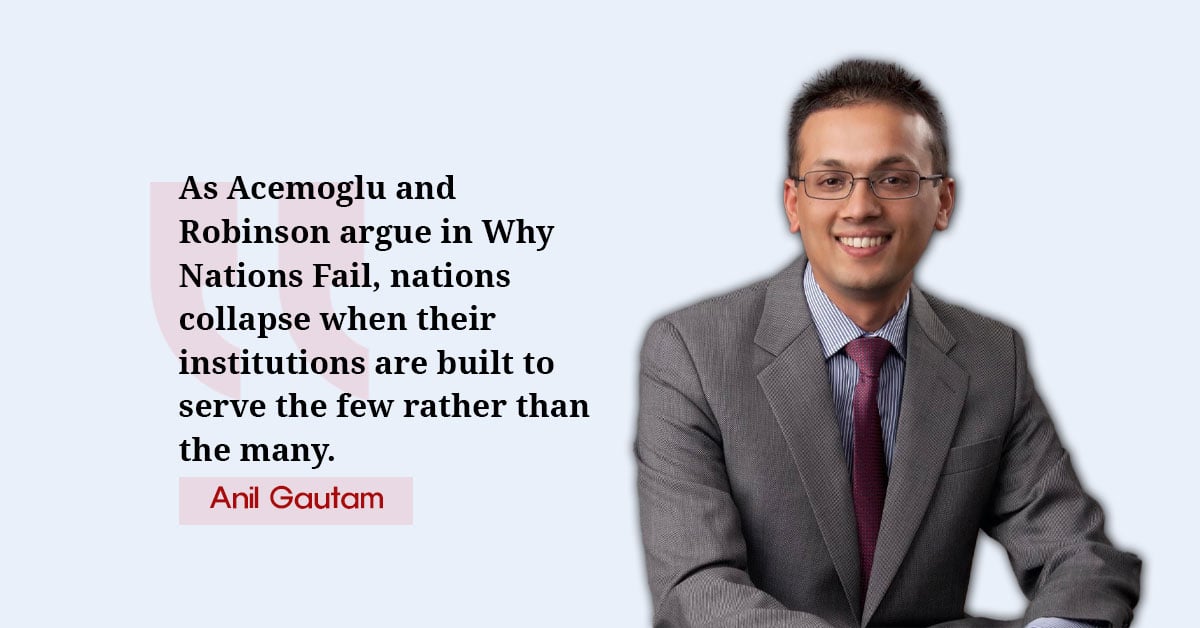

Dear Gen Z,
On behalf of my generation, I offer you a sincere apology for leaving behind a country wounded by our own failures: politics drenched in corruption, an economy left barren, an environment in crisis, and a society where wealth rules and justice sleeps.
You will have to confront this inheritance of failure, clean it up, and somehow survive. Let me unravel these failures—and I implore you to read on—for I promise a twist at the end, one that reveals how the same forces that subdued us will come to tempt you too.
Let me begin with the worst of all—our political and economic institutions: graveyards where self-interest reigns and public service dies. Yes, my generation turned politics into a theatre of power, not a service to the people.
Political parties fought for positions, not principles. Bureaucrats sought control only to dispense favours. Corruption became the currency through which everything got done. It rewarded loyalty and connection over merit and competence.
The oppressed remained helpless; the bystanders who benefited stayed silent; and the powerful treated laws, rules, and constitutions as conveniences—things to be bent at will for personal gain.
As Acemoglu and Robinson argue in Why Nations Fail, nations collapse when their institutions are built to serve the few rather than the many. Ours did just that. And so, we leave you a nation that has failed its own people.
Let me turn to the economy—built on institutions that barely exist. We leave you an economy where ordinary citizens lack fair access to markets, credit, and opportunities to create or innovate. Cities are clogged with unemployment; villages hollowed out by migration.
You can’t blame us for a lack of plans—we’ve been planning since 1957. The problem isn’t the plans; it’s how they vanish in the endless shuffle for power. In this game of musical chairs, the only plan that ever gets implemented is the plan to not lose the chair—never to look beyond it.
For an economy to grow, a country needs a marketplace everyone can reach. That depends on infrastructure—the roads, bridges, and networks that bind people and places together. But we failed you there too. We’ve left behind transport systems that barely connect towns to cities, cities to villages, or people to opportunity.
Another failure you inherit is an education system broken in both purpose and design. It doesn’t prepare a capable workforce for a market that barely exists. Instead, it is dominated by for-profit schools that bleed families dry, regional schools that can’t reach their students, uninspired teachers, and a curriculum that kills curiosity while rewarding copying.
I’m sorry we never fixed it—an education system that was never truly about cultivating skill or imagination, only about passing exams, by any means necessary.
You also inherit a damaged environment and a broken healthcare system. We leave you air you can barely breathe, rivers choked with plastic, and an unraveling climate—where disasters arrive faster than we can prepare. Healthcare fares no better. It is, in effect, “by the wealthy, for the wealthy.”
All these institutional failures stem from a deeper cultural rot—some we inherited, some we created, and none we ever confronted. The causes run deeper than politics or policy. The rich are obsessed with growing their wealth; the poor are left to survive by hook or by crook. Society rages against the rich while quietly aspiring to become them—often by the same means. It’s as if the tentacles of crony capitalism have wrapped around everyone, co-opting conscience itself.
And sadly, instead of inclusive economic institutions, we leave you crony capitalism—a system where only the wealthy and powerful can extract more wealth. Success is no longer a reflection of merit accessible to all; it’s a reflection of how adept you are at manipulating the system.
Now let me describe how the tentacles of these extractive institutions slowly pull an ordinary person into corruption. I call it the Chakravyuha of saam (persuasion), daam (bribery), danda (coercion), and bhed (division). It often begins with good intentions: helping family, supporting colleagues, navigating bureaucracy. But soon, compromises become routine. Praise follows favours, and favours become currency. If you try to change it, the system doesn’t just resist—it punishes those who try. Integrity becomes inconvenient. Then isolating. Then dangerous.
This is the warning: you’ve inherited a society where corruption is so normalized that staying honest is not just hard—it’s radical.
Gen Z and Gen Alpha, you deserve better. I confess, on behalf of all who came before you, that we seemed incapable of admitting our mistakes. Perhaps that is where change begins—with honesty, with accountability, and with the hope that you will do what we could not.